Fiber Brick Pallet: The Ultimate Choice for Concrete Block Making Machines
Introduction
When it comes to manufacturing concrete blocks, the choice of pallet material is crucial to ensure the quality and durability of the final product. Among the various options available, such as PVC, bamboo, and plywood brick pallets, the fiber brick pallet stands out as the first choice for concrete block making machines. In this article, we will compare fiber brick pallets with other commonly used pallet types and explore the reasons why they have become the preferred option for manufacturers worldwide.
Table of Contents
- What is a Brick Pallet?
- Types of Brick Pallets
- 1 PVC Brick Pallet
- 2 Bamboo Brick Pallet
- 3 Plywood Brick Pallet
- 4 Fiber Brick Pallet
- Comparing Different Brick Pallets
- 1 Durability and Lifespan
- 2 Weight Capacity
- 3 Water Absorption
- 4 Impact Resistance
- 5 Eco-Friendliness
- Advantages of Fiber Brick Pallet
- 1 High Strength and Flexibility
- 2 Moisture Resistance
- 3 Dimensional Stability
- 4 Cost-Effectiveness
- 5 Environmental Sustainability
- Why Choose Fiber Brick Pallet for Concrete Block Making Machines?
- 1 Improved Concrete Block Quality
- 2 Enhanced Productivity
- 3 Reduced Maintenance Costs
- Frequently Asked Questions (FAQs)
- 1 What is the lifespan of a fiber brick pallet?
- 2 Can fiber brick pallets be reused?
- 3 Are fiber brick pallets resistant to harsh weather conditions?
- 4 How do fiber brick pallets contribute to a greener environment?
- 5 Can fiber brick pallets be customized for specific block sizes?
- Conclusion
1. What is a Brick Pallet?
Before delving into the comparison, let’s first understand what a brick pallet is. A brick pallet is a specialized platform used in the concrete block manufacturing process. It serves as the base on which the concrete mixture is poured and compacted to form the desired shape and size of the block.
2. Types of Brick Pallets
There are several types of brick pallets available in the market, each with its own set of advantages and disadvantages. Let’s take a look at some common types:
2.1 PVC Brick Pallet
PVC brick pallets are known for their smooth surface and ease of demolding. They are relatively lightweight and offer reasonable durability. However, they are not as sturdy as other materials and may require frequent replacements, leading to increased costs over time.
2.2 Bamboo Brick Pallet
Bamboo brick pallets are a more eco-friendly option compared to PVC pallets. They are biodegradable and have decent strength. However, they are prone to water absorption, which can affect their longevity and structural integrity.
2.3 Plywood Brick Pallet
Plywood brick pallets are made from layers of wood veneers glued together. They are strong and durable, but they can be heavy and susceptible to water damage if not adequately sealed.
2.4 Fiber Brick Pallet
Fiber brick pallets are a newer and innovative option in the market. They are manufactured using a combination of natural fibers and cementitious materials. This unique blend results in a pallet that offers outstanding performance and benefits.
3. Comparing Different Brick Pallets
Let’s now compare these brick pallet types based on essential factors:
3.1 Durability and Lifespan
Fiber brick pallets have proven to be highly durable and can withstand frequent and rigorous use. Their lifespan surpasses that of PVC and bamboo pallets, making them a cost-effective choice in the long run.
3.2 Weight Capacity
Fiber brick pallets boast excellent weight-bearing capacity, enabling them to handle heavy loads without warping or breaking. PVC and bamboo pallets have lower weight capacities, limiting their application in large-scale manufacturing.
3.3 Water Absorption
One of the significant advantages of fiber brick pallets is their low water absorption rate. Unlike bamboo and plywood pallets, they do not swell or get damaged when exposed to moisture, ensuring consistent block quality.
3.4 Impact Resistance
Fiber brick pallets exhibit remarkable impact resistance, minimizing the risk of breakage during the demolding process. PVC pallets, while light, are more prone to cracking, while bamboo and plywood may splinter upon impact.
3.5 Eco-Friendliness
In terms of environmental sustainability, fiber brick pallets are ahead of PVC and plywood pallets. Bamboo is eco-friendly too, but its water vulnerability limits its lifespan, negating some eco-friendly benefits.
4. Advantages of Fiber Brick Pallet
Fiber brick pallets offer a range of advantages that have contributed to their popularity in the concrete block manufacturing industry:
4.1 High Strength and Flexibility
Fiber brick pallets combine the strength of cement with the flexibility of natural fibers, providing a resilient and durable platform for the block-making process.
4.2 Moisture Resistance
Their low water absorption rate ensures that fiber brick pallets remain unaffected by humidity and moisture, guaranteeing consistent block quality.
4.3 Dimensional Stability
Fiber brick pallets maintain their shape and size, even under extreme temperature variations, reducing the risk of deformities in the concrete blocks.
4.4 Cost-Effectiveness
While the initial cost of fiber brick pallets may be slightly higher, their extended lifespan and reduced maintenance expenses make them a cost-effective choice.
4.5 Environmental Sustainability
By utilizing natural fibers and eco-friendly materials, fiber brick pallets contribute significantly to reducing the carbon footprint of concrete block production.
5. Why Choose Fiber Brick Pallet for Concrete Block Making Machines?
With the comparison and advantages in mind, let’s explore why fiber brick pallets are the ultimate choice for concrete block making machines:
5.1 Improved Concrete Block Quality
Fiber brick pallets offer superior dimensional accuracy and smoother surfaces, resulting in concrete blocks with consistent shapes and sizes.
5.2 Enhanced Productivity
Due to their durability and reduced maintenance needs, fiber brick pallets minimize downtime, leading to increased productivity in the manufacturing process.
5.3 Reduced Maintenance Costs
With a longer lifespan and better resistance to wear and tear, fiber brick pallets require less frequent replacement, translating to cost savings in the long term.
6. Frequently Asked Questions (FAQs)
6.1 What is the lifespan of a fiber brick pallet?
The lifespan of a fiber brick pallet can vary depending on factors such as usage, maintenance, and operating conditions. However, on average, a well-maintained fiber brick pallet can last anywhere from five to ten years, making it a long-lasting and reliable choice for concrete block manufacturers.
6.2 Can fiber brick pallets be reused?
Yes, fiber brick pallets can be reused multiple times, which adds to their cost-effectiveness and sustainability. Unlike some other pallet types that may degrade or lose their structural integrity after a few uses, fiber brick pallets retain their strength and shape even after numerous cycles.
6.3 Are fiber brick pallets resistant to harsh weather conditions?
Absolutely! Fiber brick pallets exhibit excellent resistance to harsh weather conditions. Unlike bamboo and plywood pallets, which may deteriorate when exposed to rain or extreme temperatures, fiber brick pallets remain unaffected, ensuring consistent performance and product quality.
6.4 How do fiber brick pallets contribute to a greener environment?
Fiber brick pallets are crafted using natural fibers and eco-friendly cementitious materials, making them a sustainable choice for concrete block production. Their production process generates fewer carbon emissions compared to the manufacturing of PVC or plywood pallets. Additionally, their longer lifespan and reusability further reduce waste and promote environmental conservation.
6.5 Can fiber brick pallets be customized for specific block sizes?
Yes, one of the significant advantages of fiber brick pallets is their flexibility in customization. Manufacturers can tailor the size and specifications of fiber brick pallets to meet the unique requirements of their concrete block making machines. This versatility makes them suitable for various block sizes and shapes.



7. Conclusion
In conclusion, the choice of the right brick pallet is critical for optimizing concrete block production. While PVC, bamboo, and plywood pallets have been used traditionally, the rise of fiber brick pallets has revolutionized the industry. With their superior durability, water resistance, impact resistance, and eco-friendliness, fiber brick pallets have emerged as the first choice for concrete block making machines.
Manufacturers around the world have embraced fiber brick pallets for their ability to deliver consistent block quality, enhanced productivity, and reduced maintenance costs. Additionally, their positive impact on the environment makes them a responsible choice for sustainable construction practices.
So, if you’re seeking a reliable, cost-effective, and eco-friendly solution for your concrete block manufacturing needs, look no further than fiber brick pallets!
| Items | Characteristics | Technical Indicator | Outstanding Performance | Comparing with other Materials Pallet |
| 1 | Rigidity | Elasticity Modulas 3.7 GPa | No Deformation | More Rigid than same thickness solid wood pallet |
| 2 | High Load Bearing | Max load 2.0 kn,Bending Strength 51.0 MPa | Stand big pressure, high load, and brings no rupture | Higher Load Bearing than same thickness PVC and solid wood Pallet |
| 3 | Anti-abrasion | Rockwell Hardness 70 | Long Life Span | Better Performance than plywood and bamboo wood Pallet |
| 4 | Anti-impact | Withstand Impact of 20KJ/m2 | Vibration Resistant, Anti-fall, and no Cracking | Better Performance than plywood and solid wood Pallet |
| 5 | Weather Resistant | Operating Temperature between -20°C–90°C | Insolation Resistant, Anti-aging, and Suit for Steam Curing | Better Performance than PVC, steel and bamboo wood Pallet |
| 6 | Erosion Resistant | Resistance of most Acid, Alkali, and Salt | Protect inner steel and bamboo against rust and mildew | Better Performance than bamboo wood and steel Pallet |
| 7 | No Water Immersion | Water Immersion Rate<0.1% | Protect inner bamboo(wood) board | Better Performance than bamboo wood Pallet |
| 8 | Light Weight | Density<1 | Effort Saving and Friction Reducing | Lighter than PVC and Steel Pallet |
| 9 | Life Span | Life Span over 8 years | Low Cost | Better Performance than PVC and bamboo wood Pallet |
| 10 | High Performance-Price-Ratio | High Performance and Low Cost | Extremely Low Cost during long time using | Better than all other material pallet |
| Above technical indicators refer to the overall performance of our GMT brick pallet, different specifications and structures may be a little different. | ||||
please feel free to contact us by whatsapp at +86 189 5499 3585 for further cooperation
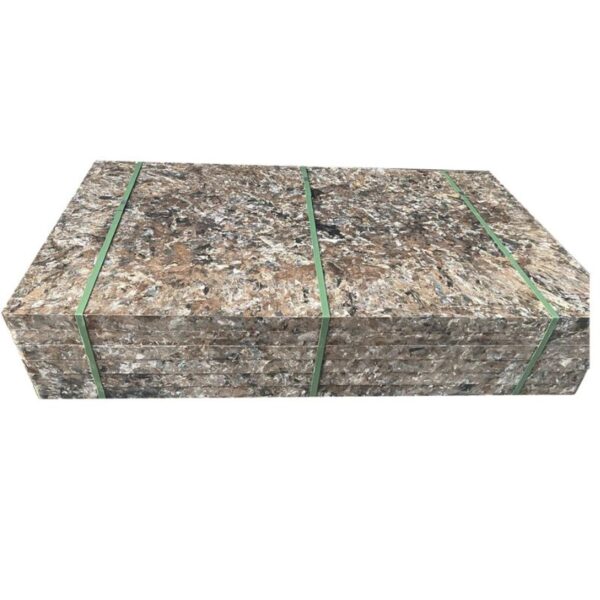
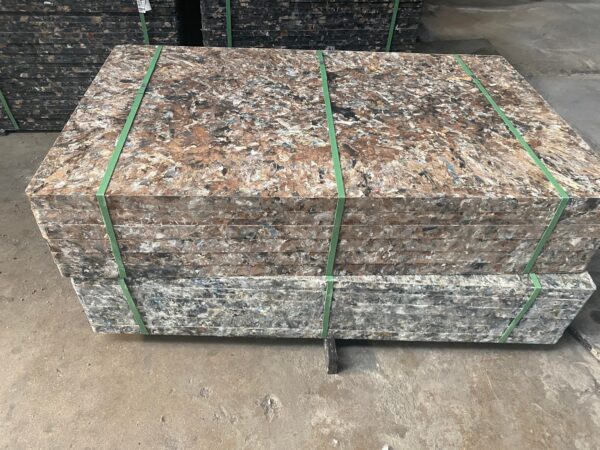
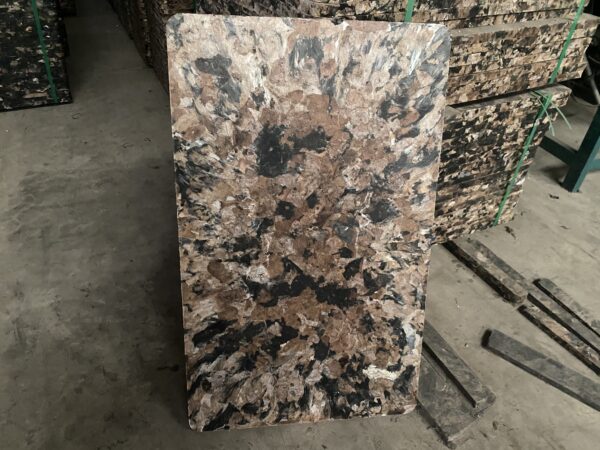
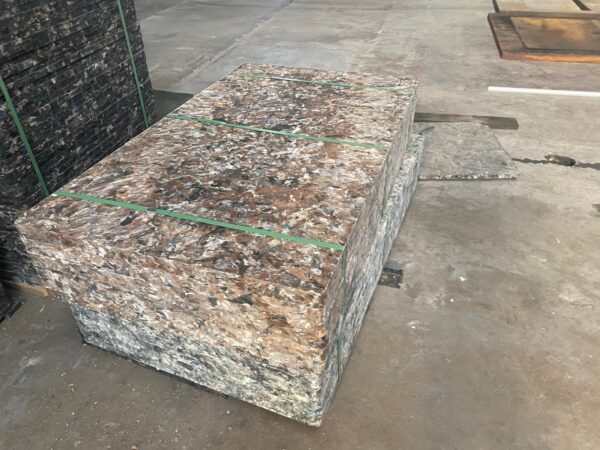
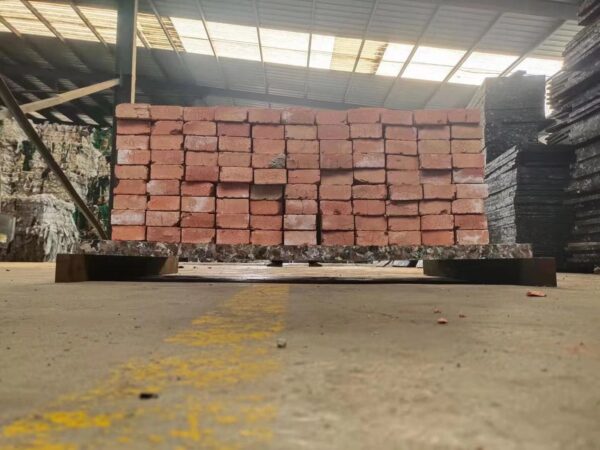
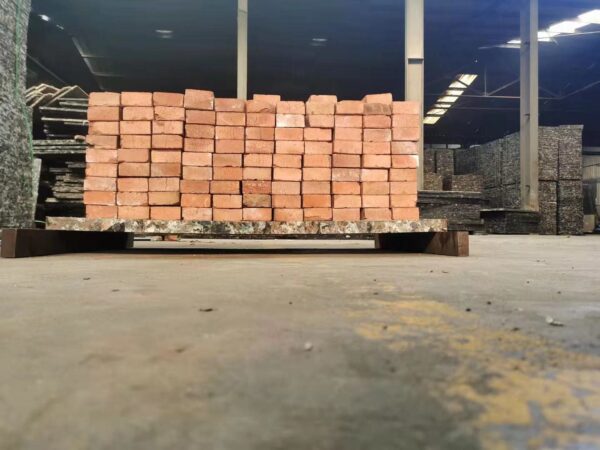
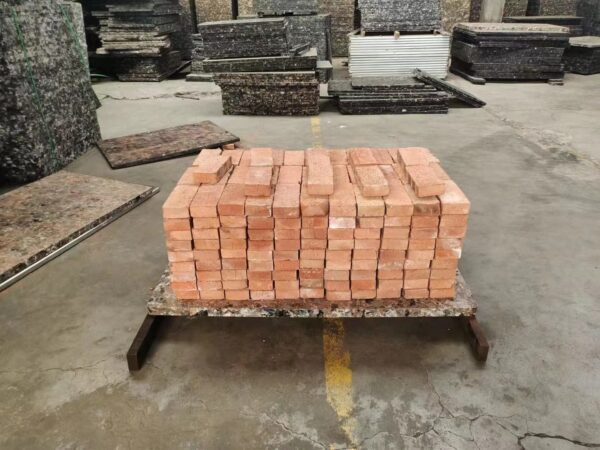
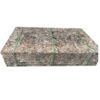
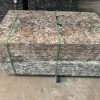
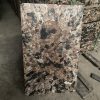
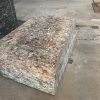
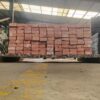
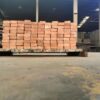
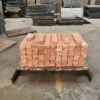
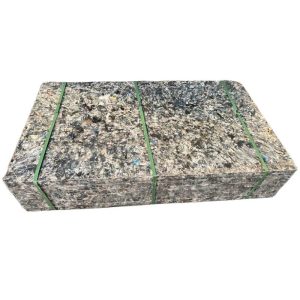
Reviews
There are no reviews yet.